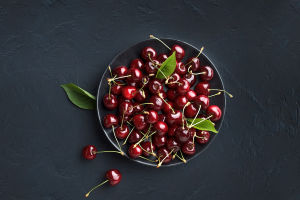Pears are more than just a juicy, sweet fruit; they're packed with history, health benefits, and fun facts that make them truly special. As we bite into the soft, succulent flesh of a pear, we often forget just how much this fruit has to offer.
Whether we enjoy them fresh, baked in a pie, or tossed into a salad, pears are incredibly versatile and packed with nutritional value. In this article, we're going to explore some surprising facts about pears that will make you appreciate them even more.
1. Pears Are One of the Oldest Fruits
Pears have been around for thousands of years, with origins dating back to ancient civilizations. We can trace their roots to parts of Europe and Asia, where they were cultivated by early farmers. In fact, pears were such a valued fruit that they were mentioned in Greek and Roman texts as a symbol of longevity and prosperity. The next time we enjoy a pear, we can think about how this fruit has been a part of human history for centuries!
2. There Are Over 3,000 Varieties of Pears
Did you know that there are more than 3,000 varieties of pears worldwide? We often enjoy just a handful of varieties, like the classic Bartlett or the crisp Anjou, but pears come in all shapes, sizes, and colors. From sweet to tart, smooth to gritty, and everything in between, the different varieties of pears provide an array of flavors to suit every palate. The variety of pears we choose can affect everything from the texture to the sweetness of our dish.
3. Pears Are Naturally Sweet, No Added Sugar Needed
We don't need to add sugar to pears to enjoy their sweetness—nature has already done the work! Pears are naturally high in fructose, which gives them their signature sweet taste. Whether we're snacking on a fresh pear or using it in a recipe, we can enjoy the fruit's natural sweetness without worrying about added sugars. This makes pears a great choice for those looking to reduce their sugar intake while still satisfying their sweet cravings.
4. Pears Are Rich in Dietary Fiber
One of the biggest health benefits of pears is their high fiber content. A single medium pear contains about 6 grams of fiber, which is about 24% of the recommended daily intake. This fiber helps support our digestive system by promoting regular digestive tract movements and reducing the risk of constipation. Eating pears regularly can also help us feel full for longer, making them a great choice for those looking to manage their weight in a healthy way.
5. Pears Can Help Fight Inflammation
Pears aren't just good for our digestion; they also have anti-inflammatory properties. The antioxidants found in pears can help reduce inflammation in the body, making them a helpful food for those who suffer from chronic conditions like arthritis. By adding pears to our diet, we can help lower inflammation and improve our overall health.
6. Pears Are a Good Source of Vitamin C
Although we may think of citrus fruits when it comes to vitamin C, pears are also a great source of this essential nutrient. Vitamin C plays a crucial role in boosting our immune system, helping our body fight off infections and stay healthy. It also supports healthy skin and aids in the repair of tissues. Adding pears to our diet can be a delicious way to ensure we're getting enough of this important vitamin.
7. Pears Can Help Lower Blood Pressure
In addition to their fiber and vitamin C content, pears are also a good source of potassium. Potassium is an essential mineral that helps regulate fluid balance and maintain healthy blood pressure levels. By including pears in our diet, we can help promote heart health and prevent high blood pressure, making them an excellent fruit for maintaining overall cardiovascular health.
8. Pears Can Be Used in Both Sweet and Savory Dishes
We often think of pears as a sweet fruit, but they are incredibly versatile and can be used in both sweet and savory dishes. We can add pears to salads for a touch of sweetness, pair them with cheese for an elegant appetizer, or even bake them into a savory dish like roasted meat with pears. The natural sweetness of pears balances out rich and savory flavors, making them a perfect addition to a wide variety of recipes.
9. Pears Can Be Enjoyed in a Variety of Forms
Pears are not just delicious fresh—they can be enjoyed in a variety of forms. From pear juice to dried pears, this fruit can be preserved and enjoyed year-round. Pears can also be canned, frozen, or turned into pear sauce, making them a versatile ingredient for different recipes. By preserving pears, we can enjoy their sweet, juicy flavor even when they're out of season.
10. Pears Are Low in Calories
For those looking to enjoy a healthy snack without consuming too many calories, pears are a great option. A medium pear contains only about 100 calories, making it a low-calorie, nutrient-packed snack. Whether we're trying to maintain a healthy weight or simply want to satisfy our hunger between meals, pears are a great option to keep us feeling full without overindulging in calories.
Pears are not only delicious and refreshing but also packed with nutrients and health benefits. From their rich fiber content and natural sweetness to their ability to lower blood pressure and fight inflammation, pears are a superfood that can play a significant role in supporting our health. With so many varieties to choose from, we can enjoy pears in countless ways, making them a versatile addition to our diets. So, the next time we bite into a pear, we can appreciate not just its flavor, but the incredible health benefits it brings with it!


